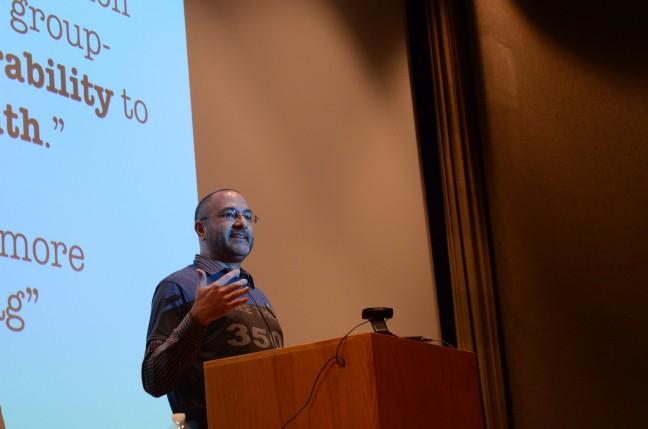As Dane County prepares itself for the findings of the investigation into Madison police officer Matt Kenny, who shot and killed 19-year-old Tony Robinson, we continue to search for ways to decrease racial disparity present throughout the county.
The War on Drugs is a huge factor in racial disparity. Without a healthy debate on making real changes to the way we deal with drug abuse in America, we cannot hope to deal with some of the core issues that perpetuate systemic discrimination today.
The numbers behind drug enforcement tell a tale of two Wisconsins: one for white people and one for black people. According to studies from The Sentencing Project and Human Rights Watch, Wisconsin has the highest racial disparity in drug sentencing in the nation. Black people are 42 times more likely to receive a prison sentence for drug convictions than white people.
One of the most glaring examples of discriminatory drug enforcement policies is mandatory minimum sentencing. These laws require judges to ignore circumstances and hand down a particular amount of years in prison, presumably to deter future criminals. However, considering the disparity present in drug enforcement, it means many non-violent black offenders could end up with a longer prison sentence than necessary, when what they really need is treatment.
This practice has come under increasing scrutiny in recent years. U.S. Sen. Rand Paul, R-Kentucky, spoke out against it in 2013, and just recently the conservative president of Americans for Tax Reform spoke about the devastating effects mandatory minimums have on taxpayers and society. Democrat-appointed Attorney General Eric Holder announced the Department of Justice would stop charging some non-violent drug offenders with charges that carry these minimum sentences in 2013. However, these laws are still in place on the federal and state levels.
Wisconsin’s truth-in-sentencing law, enacted Dec. 31, 1999, plays a similar role. Under this law all non-violent and violent criminals must serve every day of their sentence with no credit for good behavior. Gov. Scott Walker spearheaded this policy during his time in the State Assembly. It’s led to skyrocketing prison costs and prison time, prompting bipartisan support for a change to the system.
Changing the ways we punish drug offenders isn’t the only way to decrease racial disparity or overall state costs. The failed prohibition of marijuana continues to be one of the most damaging and costly aspects of American drug policy. According to an American Civil Liberties Union study, states spend $3.6 billion each year to enforce marijuana possession laws. Yet marijuana is a drug research continues to suggest has a lower risk than alcohol and tobacco. And just like most other forms of enforcement, police target black users of marijuana far more than their white counterparts.
While federal policies are well entrenched, a letter from Madison Police Chief Koval last winter contained several policy suggestions to help decrease racial disparity. In addition to recommending treatment alternatives to drug offenders and working to change how drug possession is dealt with on the state level, Koval looks to provide resources to youth to prevent them from ever entering the criminal justice system in the first place.
Koval isn’t alone in his opinions on drug enforcement. A national survey from the Pew Research Center shows a growing majority of Americans essentially believe the War on Drugs has failed. Sixty-seven percent of Americans think the government should focus more on providing treatment for hard drug users, with just 26 percent calling for a focus on punishment. Seventy-six percent of the general public indicated they believed “people convicted of possessing small amounts of marijuana should not have to serve time in jail.”
Having a discussion about drug policy isn’t glamorous, and it will not alleviate the anger, pain or difficulty faced by people of color today in Wisconsin. However, it will set us on a path to greater reconciliation, and a more equitable and fair state for all Wisconsinites.
Alex Derr ([email protected]) is a junior majoring in environmental science and political science.














